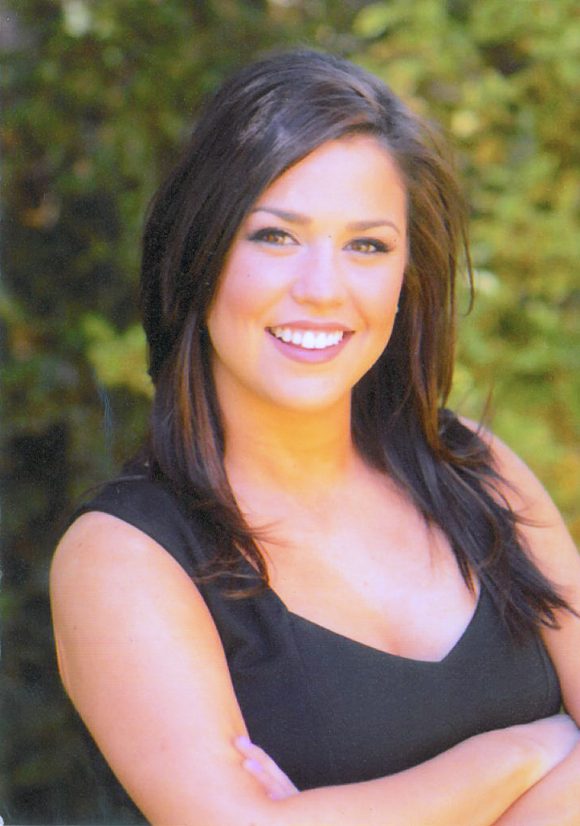Fowler Law Student Benefits from Judicial Externship Out of Her Comfort Zone
July 12, 2016

As a second-year student planning on a future in litigation, Gabrielle LaCarre (JD ’17) knew a judicial externship was one way to help achieve her goals. Rather than pursue work at a private law firm, she opted for a chance to see things from the other side of the bench through an externship at the Orange County Superior Court, where she found her passion outside of her comfort zone.
Fowler School of Law externships
allow students to pursue their passions beyond the classroom while building their resumes and gaining valuable professional experience in addition to course credit. The work can vary as wildly as the seven emphasis areas the law school offers, ranging from working with private law firms to large corporations and nonprofit organizations.
Read more below about Gabrielle’s externship experience and why she recommends that students take as many externships as possible.
Tells us about the process of obtaining your externship.
Initially I was hesitant about going through the second-year judicial externship interview process. Then I received an email from Professor Carolyn Larmore,
Director of Fowler Law’s Externship Program
, explaining how judicial externships allow students to get great experience while “peeking behind the curtain” to see what’s going on in a judge’s chambers. Prior to embarking on a second-year judicial externship, I had already worked in the court system – having obtained a summer position with Justice David A. Thompson, Associate Justice for the Fourth District Court of Appeal in Santa Ana, after finishing my first year at Fowler Law. That position arose as a result of
my success in the first year oral argument competition
, making a connection with Justice Thompson who was one of three judges in the competition finals.
Seeking to secure my second externship required a more traditional approach, via the application and interview process. When it came time to make my application, I decided to seek a position working for a judge at the trial court level – rather than the appellate level. Trial courts offer a more active and energized work environment than the typically solitary work in the Court of Appeal. The application process ended up going very smoothly, and ultimately I was selected to work for Judge Thomas Delaney in the California Superior Court at the Harbor Justice Center in Newport Beach.
Working for Judge Delaney was the most exciting and fulfilling job in my life. Prior to law school, I worked in the sports marketing field – so I’ve had some rewarding and very interesting positions – but stepping into the Superior Court system took things to a whole new level. Judge Delaney has a big personality and is very welcoming to younger students and attorneys. But if you want to know something you’ve got to ask, so very quickly I got comfortable asking
a lot
of questions. The law school classroom environment can sometimes be so intimidating that I’m not always willing to step up and ask questions, but with Judge Delaney I felt comfortable admitting that I didn’t understand something, or asking for further clarification of new concepts. And working for a sitting judge is enlightening because you’re getting a direct answer from someone who is making real-world decisions every day. So I learned a lot by simply asking questions and making observations.
When assignments started coming my way, I not only got projects from Judge Delaney but also from the other judges in the courthouse. This was sometimes daunting, but the wide scope of projects also exposed me to an amazing range of tasks. My projects included post-conviction calendar write-ups, memos of general felony law, and jurisdictional issues (where I found out you really do Civil Procedure in the real world), among many others.
Did you go into your externship knowing you wanted to be in Superior Court or were you looking for anything new and interesting?
After my first externship with the Court of Appeal, I really wanted something more fast-paced, so I knew I either wanted to be in Superior Court or maybe working with a firm. I had an offer to go work for a law firm with one of our family friends, which was a great opportunity to do interesting Intellectual Property work. But I felt like I needed to push my boundaries, so I chose to pursue the Superior Court position.
Law school life is generally very structured, and can be fairly solitary. Much of the time it’s about you – studying alone, what you can write, and what you can do. I think the harder part is when you apply all that to the real world – suddenly everything is interactions and networking, and being outside of yourself. So I decided I needed to try this. I wanted something a little more fast-paced.
People ask why I want to do a judicial externship if I don’t want to be a judge, or why I don’t extern with the District Attorney if I want to be a litigator. And that’s something I’m sure I’ll do at some point, but I think there is a benefit to knowing the people who are in charge of those cases and how they decide them. Working for the DA gives you one perspective about how a case is going to be handled; but working for a judge helps you see (and learn) both sides. So I think this was a smart choice and it really was an amazing experience.
What’s one of the most memorable moments so far?
Working for Judge Delaney, we had to take some small claims cases. We broke them up into groups and brought the attorneys back into the judge’s private chambers, helping them get into a settlement and mediation mode. We had heard both sides and even brought in the parties, and then the judge sat down and asked me to break it down. It was different for me because I’d never experienced any of that. I also found it interesting to see how the lawyers’ gloves came off in chambers in talking and discussing what they wanted and what they were planning to bring up in the courtroom – because surprises in real court don’t happen. It was a bit intimidating realizing I hadn’t prewritten or researched anything – that I was just going off of what was in my mind, in the moment. I synthesized things I knew, referring back to concepts I learned in law school or things I gleaned from working for the judge. Classes like Agency Law and Contracts came back to me in a way that I don’t think I would have recalled if I was simply writing a memo. Unlike structuring a written legal document, I simply focused on “how can I make this work?” The judge acknowledged that even he hadn’t thought of some of the ideas I proposed. This was a great feeling and the moment I realized that this is work that I really enjoy. Those moments are hard to come by in life, so it felt fantastic to be reaffirmed in what I was doing.
I’ve heard some others who complain about their externships, stressing about big projects or losing sleep at night. But my experience with Judge Delany at the Orange County Superior Court made me want to take on
more
work because it was fun, rewarding, and I absolutely loved it!
What’s your advice to other students about taking externships?
The more work you do in real practice – whether it’s an externship, or clinic, or a summer clerkship – the better you’ll feel about what you’re learning. Before coming to Fowler Law, I thought that externships were simply resume-builders – if you don’t beef up your resume with this type of work, then your education is going down the drain. But once I actually began working in an externship, I realized the relevance of what I’ve been learning in law school. It’s one thing to read about civil procedure and statutes, but it’s something quite different to see how those things work in a courtroom or see how they are handled by a professional. And once I started doing externships, I felt like law school became easier, and my classroom participation flowed much more freely. Once you’ve discussed something with a judge in his private chambers (which can be quite intimidating!), talking to a professor becomes a lot easier. The experience takes away a lot of the anxiety and nervousness, which makes it easier to apply yourself, grow, and really learn.
So, my advice is: do as many externships as you can and do them in areas that you think you might not be interested in. You will surprise yourself. I didn’t think I was going to be involved in litigation at all, and then I got the Court of Appeals position and I realized, “OK, now I know that I probably don’t want to do appellate work.” And then I took the position at the Harbor Justice Center and thought, “Yep, this is a dream. I found my people. This is great, and now I know.”
In the end, externships are a way to discover more about yourself. So do them; and do things that make you uncomfortable. Because the more experience you have the better candidate you’ll be for the job you really want!

